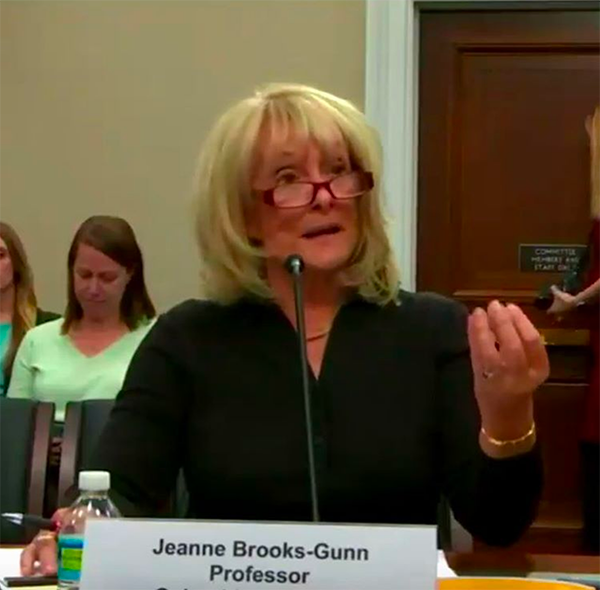TC’s Brooks-Gunn Recommends Expansion of Federal Early Childhood Programs at House Committee Hearing

Brooks-Gunn told the committee that her research has shown that the Child Care Development Block Grant and Preschool Development programs, as well as Early Head Start and Head Start, have produced long-term positive effects on employment and educational attainment and have been successful in helping to mitigate the consequences of growing up in poverty.
“There is a growing mountain of evidence that early child interventions like this work to reduce the effects of poverty and narrow the achievement gap,” she said.
Given their proven success, Brooks-Gunn made the following recommendations for Early Head Start and Head Start programs:
- Early Head Start should be expanded to serve more than the five percent of eligible families currently being served. More slots in Head Start, and more than one year of programming, should be funded for 4- and 3-year-olds.
- To sustain Head Start’s positive effects into elementary school, coordination of curricula and teacher training between preschool and early elementary school are needed.
- Head Start programs are most effective when their funds are spent primarily on education and health (rather than other services). “Attention needs to be paid to what services are supported in Head Start programs,” and “more attention could be paid to parental education and employment.”
Brooks-Gunn also made recommendations for Child Care Development Block Grant and Preschool Development program.
- A 2011 study showed that 38 percent of eligible working mothers with preschool children were not receiving any block grant subsidies for child care. Those families should receive subsidies, and more families who are near poor should qualify for subsidies.
- In addition, most states cover a “fairly low percentage of the actual cost of child care”—in some states only 40 percent of the cost, Brooks-Gunn said, providing a disincentive for families to use higher-quality, more expensive center-based care. Subsidies should therefore be raised to cover more of the actual cost of child care, she said.
Federal early childhood programs “help parents of young children enter the work force,” and, if they are high-quality, “prepare children to enter school ready to learn,” Brooks-Gunn said. “These programs do not serve all eligible families and could be expanded to meet the needs of more families who are poor and near poor and their young children. Investments in parents encourage employment, and investments in children encourage success in school and beyond.”
To hear a webcast of the full hearing, go here.
Published Monday, Mar 20, 2017